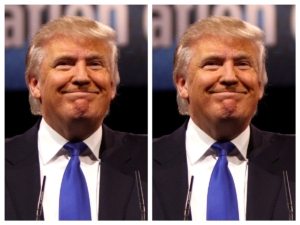Organizers behind the nationwide Target boycott say their campaign is proof that consumer pressure can still shake corporate giants, pointing to declining store traffic and recent leadership changes as evidence that their strategy is working.
The protest began in January after Target decided to scale back diversity, equity and inclusion (DEI) efforts, a reversal that many activists saw as a betrayal of promises the retailer made in 2020 following the George Floyd protests. Civil rights leaders including the Rev. Al Sharpton and the Rev. Jamal Bryant quickly rallied support for the boycott, which gained traction across the country.
At a press conference outside Target’s Minneapolis headquarters last week, Jaylani Hussein of the National Target Boycott movement argued the impact has been unmistakable. “It’s been now nearly 200 days and what all the statistics and economics are showing that since that boycott was announced on that Monday — every single week since then — Target foot traffic in nearly 2,000 stores has declined sharply and continues to decline,” Hussein said.
READ ALSO: 40-day boycott launched against Target after rolling back DEI policies
The leadership shake-up came as Target announced CEO Brian Cornell would step down in February 2026, with chief operating officer Michael Fiddelke tapped as his successor. Some activists welcomed the shift but stressed it does not go far enough. “The leadership change doesn’t mean anything without a culture change,” the Washington-based DC Boycott Target Coalition declared in a statement, pledging to keep the pressure on until the company restores its DEI goals and “sees its diversity commitments as more important than bowing to an administration that is filled with racism, failure and hatred.”
Watch a recent episode of The BreakDown podcast below and subscribe to our channel PanaGenius TV for latest episodes.
The roots of the boycott go back to February, during Black History Month, when opponents accused Target of abandoning the very values it had publicly championed. While Black-owned brands sold in Target stores were sometimes caught in the middle, organizers say accountability outweighed the disruption.
Cornell, who has led Target since 2014, had actually been expected to transition into a new role for some time. The board extended his contract in 2022 and waived a mandatory retirement age, allowing him to stay longer. When he steps down, he will continue as executive chair. In a call with reporters, Fiddelke downplayed the boycott’s role in Target’s troubles, citing instead a lack of fashionable products and operational missteps.
Retail experts are divided. Stacey Widlitz, president of SW Retail Advisors, said Target’s downturn is more about messy stores and poor stock than DEI politics. “The consumer has a very short memory. If you have great, compelling product at value prices, they’ll forgive you,” she was quoted by AP in a report.
Yet data suggests shoppers are drifting. According to GWI, the number of Americans who regularly shop at Target has dropped 19% since 2021, while those who say they never shop there has risen 17%. The partisan divide is stark: Democrats reporting regular Target trips fell 13% in the past year, while Republicans rose 13%.
READ ALSO: Georgia pastor urges full boycott of Target over DEI rollbacks
Boycott organizers argue they are tapping into a long tradition of economic protest, from Reconstruction-era “Buy Black” efforts to the Montgomery Bus Boycott to the NAACP’s 15-year stand against South Carolina’s Confederate flag. Social media has also amplified their reach, with some Black creators on TikTok hailing Cornell’s departure as a win for the movement, even as others warned the executive’s shift to board chair meant little had changed.
Central to the fight is Target’s retreat from pledges it made after George Floyd’s killing. In 2020, the company vowed to increase Black employee representation by 20% over three years and invested $10 million in social justice organizations. By 2021, it promised more than $2 billion in spending on Black-owned businesses by 2025. In January 2025, however, those targets were quietly concluded.
For civil rights attorney Nekima Levy Armstrong, the path forward is clear: “We’re expecting that Target is making good on the promises that it made. Otherwise there’s no point of discussion regarding calling off this boycott. We’re asking people to join us, get involved and hold Target accountable for its actions.”
With Black Americans’ buying power now estimated at $2.1 trillion annually, activists say Target ignores the boycott at its own risk.
READ ALSO: Atlanta pastor to lead protest against Target on George Floyd anniversary over DEI










